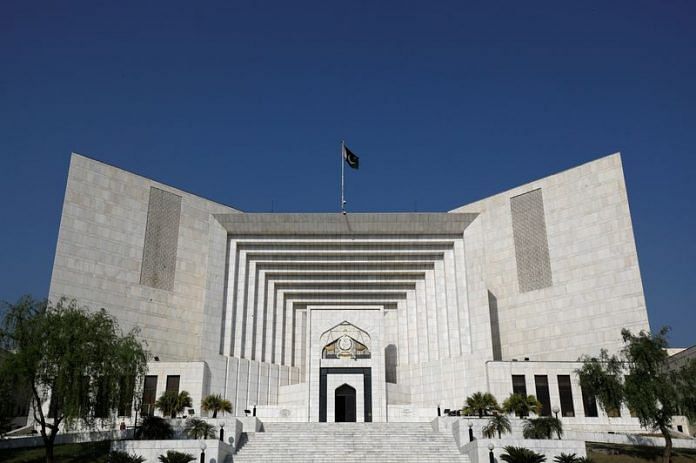By Asif Shahzad
ISLAMABAD (Reuters) -Pakistan’s parliament on Thursday rejected a Supreme Court order to conduct provincial snap polls, in the latest move in a power struggle between the government and the top court amid political and economic instability.
The top court had on Tuesday ruled illegal the government’s move to delay the snap polls in two provinces where former prime minister Imran Khan had dissolved his local governments earlier this year.
The speaker, in a live broadcast, said a motion was adopted by a majority of lawmakers to reject the court decision by a three member panel headed by the chief justice and to demand a full court panel consisting of all judges hear the case.
The court’s Tuesday order said that the elections in two provinces should go ahead despite government reluctance to hold the votes now as it struggles with an economic crisis and a political challenge from the opposition.
It gave a date of May 14 for voting in Pakistan’s largest and most prosperous Punjab province, and a pending date for voting in the northwestern Khyber Pakkhtunkhawa province due to some technical issues.
It also ordered the government to release funds worth 21 billion rupee ($73.36 million) to the Election Commission of Pakistan for the voting and told it to update the court by April 11.
The government and judiciary have been at odds over cases related to political-wrangling, and parliament last week introduced a draft law to clip the chief justice’s powers.
Prime Minister Shehbaz Sharif’s government has been saying the country’s poor economic condition didn’t allow spending on the snap polls and then on a general elections due later this year.
Khan’s Pakistan Tehreek-e-Insaf (PTI) party and its allies had dissolved the provincial governments, hoping that it would force Sharif’s government to hold snap polls across the country, his longstanding demand since he was ousted a year ago.
($1 = 286.2500 Pakistani rupees)
(Reporting by Asif Shahzad; Editing by Hugh Lawson, Alexandra Hudson)
Disclaimer: This report is auto generated from the Reuters news service. ThePrint holds no responsibilty for its content.



